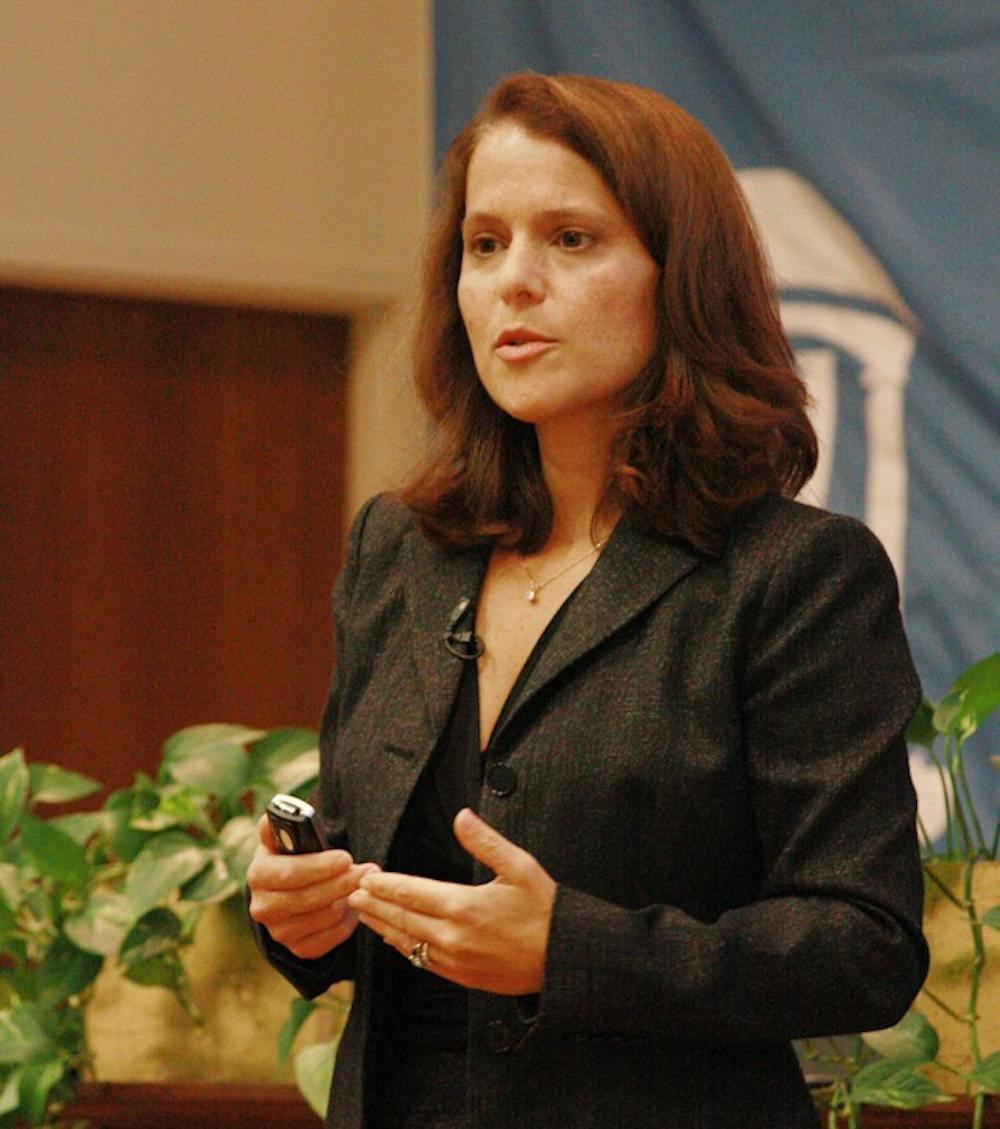The right to offensive speech was passionately defended Tuesday in the University’s third annual First Amendment Day keynote address.
Mary-Rose Papandrea, keynote speaker and an associate professor at the Boston College School of Law, said offensive language should be protected, particularly in the age of social media.
“We’re better off if we know what people think,” Papandrea said.
She said complete freedom of speech, not censorship, is an effective counter to offensive speech because censorship infringes on First Amendment rights and the nation’s strong commitment to the marketplace of ideas.
Papandrea delivered the address in a playful tone and presented detailed accounts of Supreme Court cases dealing with freedom of speech in the public sphere.
Highlighting the controversial case Tinker v. Des Moines as the peak of student expression, Papandrea traced the dramatic decline of speech rights in public schools.
Since that case, courts have addressed and deferred free speech controversies to school officials, she said, adding that First Amendment rights have been infringed upon by controlling school officials.
Citing more recent cases in which students were punished for lewd or offensive social media posts, Papandrea focused on the restrictions of rights and compared students’ free speech rights to those of prisoners.
Problems of overactive school officials are now exacerbated by social media because schools are policing the private spheres of students’ lives by censoring online media, Papandrea said.



